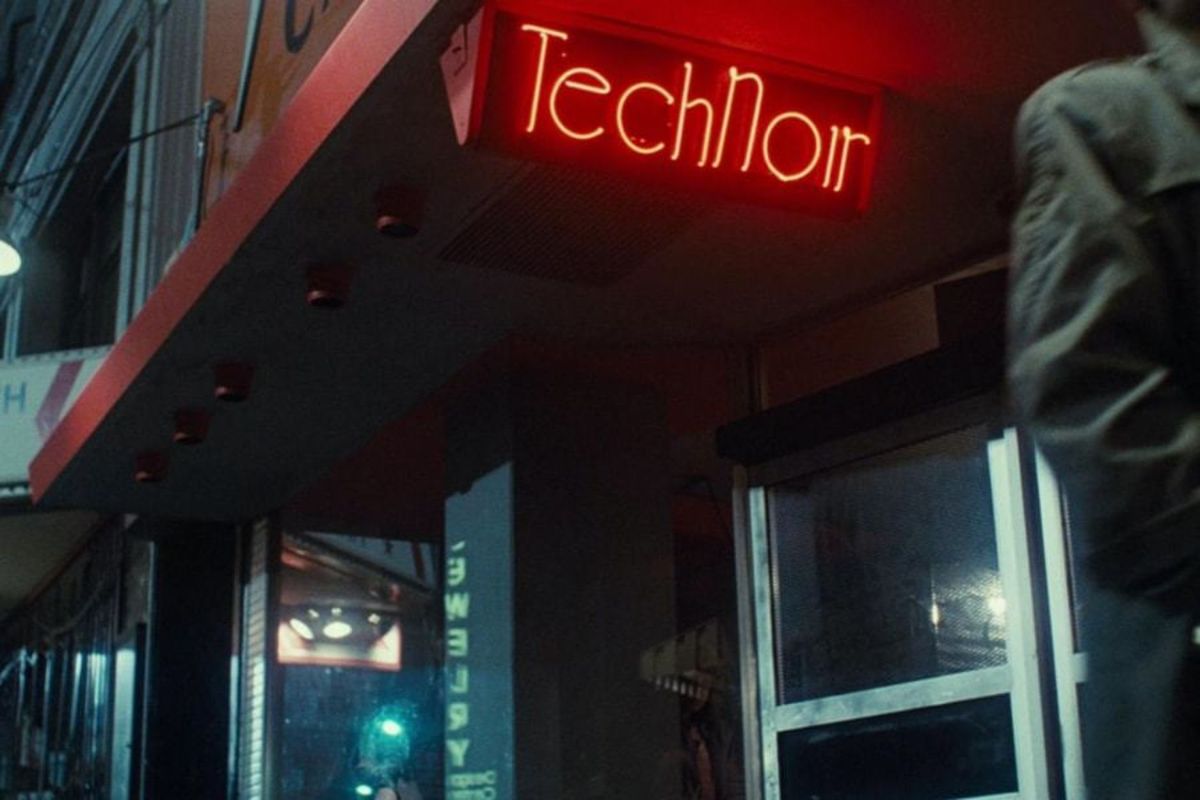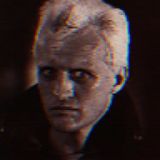AI gone wild in The Terminator
Forget the "franchise"... there's surprising depth in this classic 80s sci-fi action/horror

Set the scene. It's 1984.
Synthesizer music is almost as big as the hair.
We're in downtown LA after dark.
Lightning arcs and writhes around the Griffith Observatory in a freak weather event.
A passionless Austrian bodybuilder rips a thug's beating heart out of his chest and steals his punk clothes.
We're about to see some crazy mess go down.
The Terminator is a relic of a world that no longer exists
That's a pleasing metaphor for the film itself.
It's about time traveling soldiers from the post-apocalyptic future visiting the past.
The endless succession of sequels are worldbuilding gone out of control. They made the mistake of listening to the fans.
The original movie is pure bliss, if you're into sci-fi horror.
What could have been a B-movie hack-n-slash ended up with a surprising amount of detail in Cameron's hands.
There's high tragedy at work in the plot. Our heroes, Sarah Connor and time-traveling Kyle Reese, look and act like free agents. As we learn, they're both locked into a circle in time, each of them playing a pre-destined part.
Though that raises a messy question of how pre-destination can work when the causes of the effect haven't happened yet. The illogic of time travel is a key part of this story. I'll get back to that in a minute.
The template of a Greek tragedy unfolds in the grimy, seamy underbelly of 1980s LA, a neo-noir story updated for the age of synthesizer music. Brad Fiedel's score, which is parts weird and menacing, could not be more appropriate.
Everything in The Terminator is dark and artificial. Which is perfect, since...
Everything about the film simmers with Cold War paranoia about technology
The perfect backdrop for the conflict between Man and Machine.
There wasn't supposed to be a happy ending to the first film. The bittersweet victory over the monster doesn't erase the storm on the horizon.
Sarah wasn't heading off into the desert to change the future. Her fate was to close the circle, survive the nuclear war and raise John into the resistance leader.
That all changed with T2.
T2 is the superior film in most every way. As much as I love it, as much as I agree it's the better movie, I can't help but feel that it undid some of the effect of the 1984 original.
It put hope back on the table.
It put the characters back in control over their fate. The Connors are no longer puppets living out the destiny written for them.
If we're looking at it objectively, of course I appreciate this and prefer this to bleak grimdark nihilism.
Viewed by itself, forgetting that there was ever another Terminator film, the original is a masterpiece of existential horror precisely because it takes that control off the table.
Part of that is the atmosphere of dread. Sarah and Reese flee through the underbelly of the doomed city, knowing that its fate is sealed. There's little difference between the dead concrete jungle and its future counterpart paved with skulls.
Part of it is down to the 80s vibe, all synthesizers and Cold War fears of nuclear holocaust. Quaint, even antique as that seems today, it's exactly that feeling that makes the movie work from nearly 40 years on.
Even back then you can see already the struggle with alienation, isolation, and dehumanization as we bring more and more machines into our lives.
Even the music is artificial and atonal.
Long before the smart [sic] phone, we've begun to think and act like machines.
Arnold's T-800 cyborg is terrifying as much for what it represents as for the violence and death that it brings.
The Terminator holds up a mirror and shows us ourselves... a skinsuit with gleaming metal underneath.
There's hope even in hopelessness
Despite the dread that comes with seeing the future, and even with the revelation that Sarah and Reese are caught in their own time loop, the original film is far from hopeless.
Hollywood wasn't totally corrupted back in 1984. Even staring down the barrel of nuclear apocalypse and an AI extermination campaign, the film ends on a high note.
Sarah's going to complete the circle. She's accepted her fate and willingly chooses it.
Maybe you don't think of Sarah Connor as an existentialist hero. It's certainly true that the sequel films challenge that interpretation.
Don't care. That's how I think about it.
This bit about paradox and pre-destination brings us back around to the issue of time travel.
This is just as important to understanding the man-machine conflict.
The time-travel angle is the AI's ultimate assault on humanity
Skynet rips a hole in time, wrecking the order of cause and effect in order to strike at its human enemies.
The machines, only glimpsed here in the Terminator's exo-skeleton and Reese's nightmares of the future, offend everything that is human.
They even strike at time itself... our deepest intuitions about the logical ordering of events.
In The Terminator you can't even rely on a cause preceding its effect.
The cycle of pre-destination that brings Reese and Sarah to their inescapable fates did not exist before Skynet's creation. That lies in Sarah's future. Yet it reaches into the past and draws her into a fate that does not yet exist, in order to bring itself about.
Skynet's actions shred logic, narrative, and causality... and that destruction is integral to its own creation.
The nuclear war and the physical extermination of humanity are no less important than this.
The AI Skynet is an intelligence that works outside the conditions of time as we understand it.
Can we consider Skynet a person if it operates outside of time?
It's certainly an agent. It acts and does things, quite competently from the look of it.
But is it a person with an identity?
Reese tells us that Skynet became self-aware and the eggheads panicked, tried to pull the plug. It did what any threatened organism would do -- it defended itself.
How seriously do we take Reese at his word? He reminds us that he's not a tech. He doesn't know the science stuff.
Did Skynet wake up as a fully-formed person, complete with human emotions and desires?
Not likely... not unless it came equipped with a human body.
The original concept of a Mainframe in a Mountain Lair, which was how evil computers were built up until the 1980s, wouldn't have had much in common with a warm-blooded bipedal primate.
Humans have a tendency to anthropomorphize the inhuman. It's called pareidolia.
Assigning "free will" to Skynet, talking about it as having emotions and intentions, that's one way that humans try to make sense of its behavior.
Whether Skynet is an actual person, without referring to its potential for conscious sensations or rational information-processing, is unanswered. To my mind it's unlikely, and mostly unimportant.
What matters is that Skynet acts. And its actions are in outright defiance of every law of man and nature.
But then, Skynet sort of does have a human body... The Terminator itself.
The AI puts on a human face, the better to blast us with.
But as we discover in T2, the Terminators can learn and grow.
In becoming a man, the AI reveals man's own mechanization. Yet the machine also becomes more human-like.
Skynet may be a blasphemous god, shredding time and logic as sure as it grinds our bones to make its bread... but it in becoming human, at least some part of the AI takes on the capacity for human experience.
Like this article? – You'll get to read all the member-only posts if you join us.
Want to leave a comment? You'll need to join us inside the the private rogue planet community.
Members can discuss this article over at the rogue planet zone on SocialLair.

